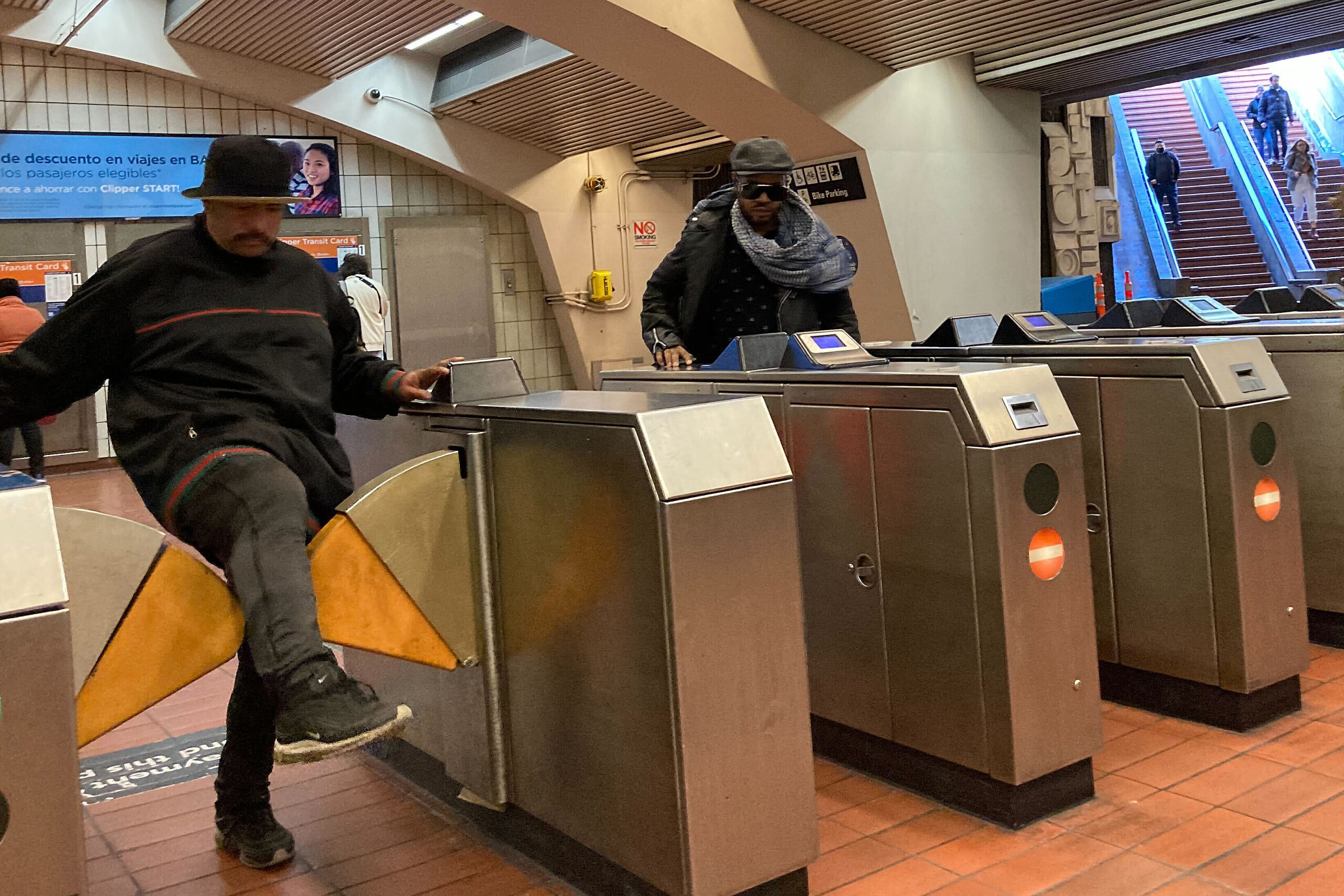At a Thursday meeting, BART board members signaled broad support for a $90 million project to install new fare gates and debated new state legislation that would strengthen the BART Office of the Inspector General, the lead watchdog tasked with investigating waste and fraud at the embattled transit agency.
The so-called “next-generation fare gate” project is meant to deter fare evasion and reduce maintenance on the system’s 700-odd fare gates. The agency estimates that fare evasion may cost the system up to $25 million annually.
Instead of the pneumatic fin-like gates that currently comprise most of the system’s fare gates, the next-generation gates will be informed by plexiglass door prototypes developed by BART and deployed at Rockridge Station.
The idea is to create a modular system that provides flexibility with design and layout, while providing more security than the existing system. The total cost of the project is estimated to be $90 million, of which $72.8 million have been secured to date via funds from BART, county transit agencies and federal and state sources.
The board is poised to award a $47 million contact to vendor STraffic America at its April 13 meeting. At that point, the vendor will be given the green light to proceed with preliminary design work with the goal of delivering a pilot gate at West Oakland Station within seven months.
“There’s an appetite out there to go ahead and get this thing done,” said Bob Powers, BART’s general manager.
However, full installation of the new gates is still a ways off. The contract that will be awarded is primarily focused on design, system integration, prototyping and training, rather than installation. The hope is to provide all stations with new fare gates by 2026.
“The honor system is over; we have to have gates that allow for paid passengers to get in the system without getting piggybacked,” said BART Director Robert Raburn.
Strengthening BART Oversight
A pathway to strengthening the Office of the Inspector General (OIG) through state legislation may gain the support of the BART board, but potential criminal penalties for obstruction remain a roadblock.
At Thursday’s meeting, BART board members weighed legislation from state Sen. Steve Glazer, a state lawmaker from the East Bay who has made fiscal oversight of the transit agency a key legislative priority.
SB 827, which is set to be heard by the state Senate’s transportation and judicial committees in April, would give the office statutory access to records and the right to enter any district office or facility during work hours. It would also require BART employees or third parties to permit access and examination of documents necessary for investigation.
The law would align the BART inspector general office’s duties and responsibilities with those of similar agencies, including the CalTrans Independent Office of Audits and Investigations and the State Auditor’s Office.
The inaugural inspector general for the BART system retired earlier this month, in part, because of what she described as interference in her office’s investigations and attacks on its independence.
BART board directors voted unanimously to support the legislation if it is amended. One of the remaining sticking points for BART board members was language that added a criminal penalty of up to 6 months in jail or a $1,000 fine for interfering with the office’s activities or failing to produce records.
Amanda Cruz, BART’s director of government and community relations, said the bill was “less prescriptive” than SB 1488, which would have also expanded the inspector general’s powers. Gov. Gavin Newsom chose to veto SB 1488 after the BART board sent a letter requesting he do so.
But she also highlighted “concerns as to whether a criminal penalty is the appropriate approach.”
In response to a question about the use of these criminal penalties by other agencies, Claudette Biemeret, BART’s assistant inspector general, noted the staff at her office’s counterpart at CalTrans said they never had to enforce that language. “It has served very well to just be a deterrent,” she said.
One potential compromise that received support from the BART board was potentially giving its inspector general’s office additional subpoena power in exchange for the removal of the criminal penalties.
“Subpoena or criminal penalties, I think is really beneficial to the OIG to ensure that we can conduct our work,” Biemeret said.
In a statement, Glazer’s spokesperson Steve Harmon said that the “senator is perfectly satisfied with the bill in its current form.”
“It matches up with the responsibilities with the CalTrans Inspector General, which has the support of the governor and Legislature,” Harmon said. “He has said this from the beginning: it they’re not doing anything wrong, they shouldn’t worry about criminal penalties.”
